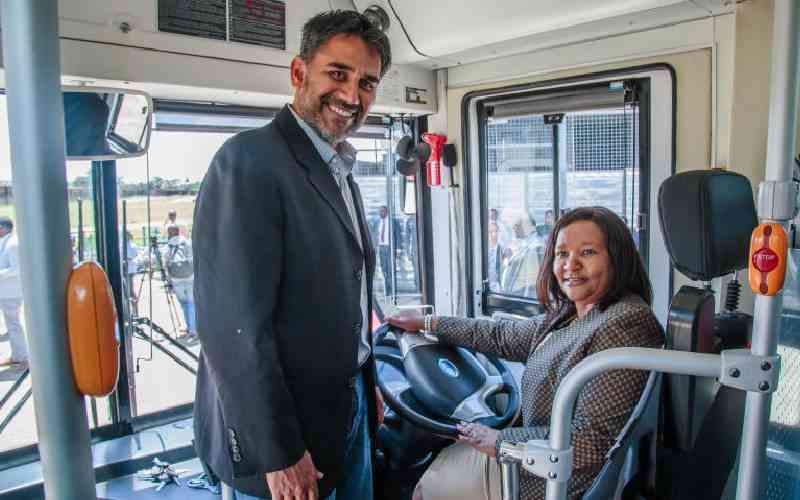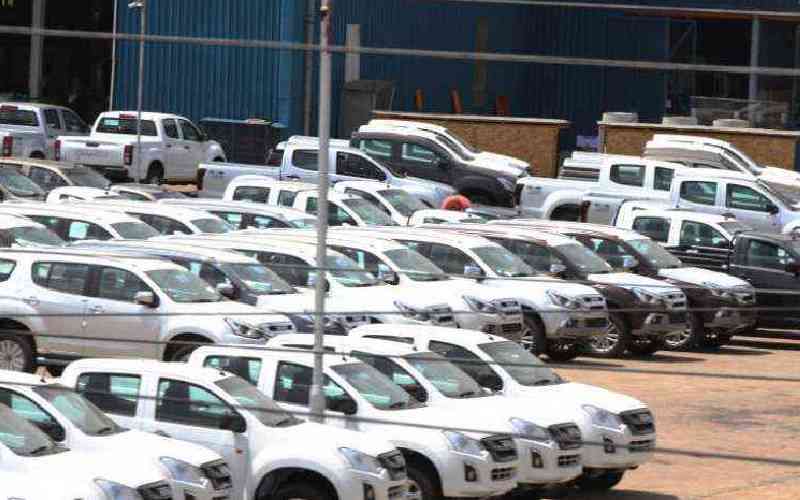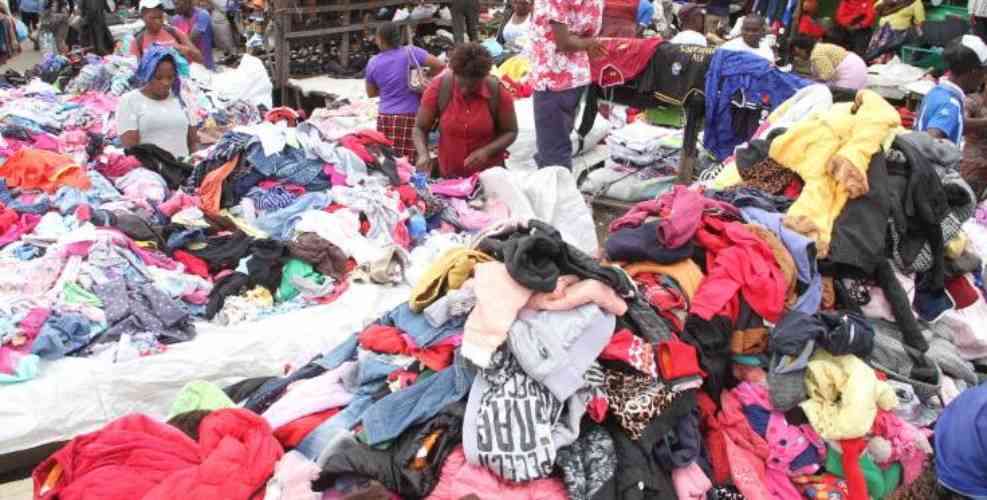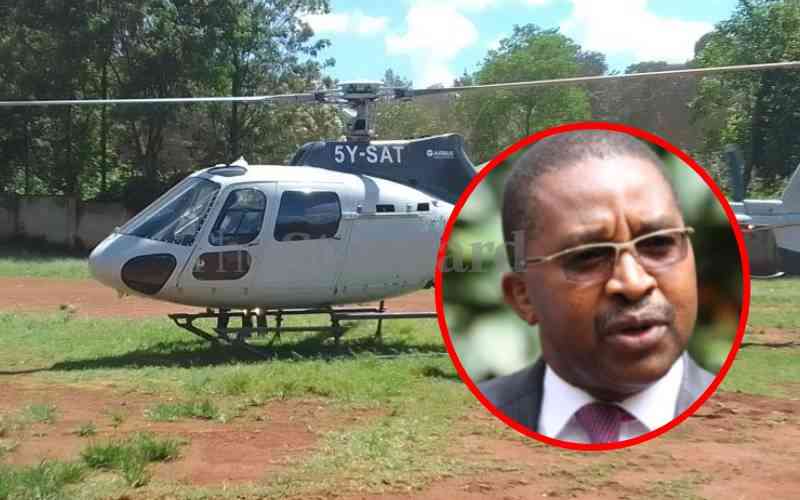Confusion has locked local motor vehicle inspection business after authorities gave contradicting reports on a firm contracted to conduct pre-shipment inspection.
While Kenya Bureau of Standards (Kebs) insist Quality Inspection Services Inc Japan (QISJ) is capable and qualified to execute the contract without hitches, Japan Harbour Transportation Association (JHTA) has de-registered the firm on the grounds of inability to sufficiently inspect motor vehicles for radioactive material.
Kebs Managing Director Charles Ongwae has given QISJ, whose award of a three-year contract was also dogged by controversy, a clean bill of health.
Instead of carrying out an independent investigation to establish the level of competence of the firm, Kebs said the company would continue inspecting vehicles at the Port of Mombasa as per the terms of its contract, raising questions on how this would be done with the vehicle already in Mombasa.
“QISJ has confirmed to Kebs that the decision by JHTA to delist them does not affect their roadworthiness inspection for Kenya and other countries that have contracted them. They will continue to carry out radiation inspections for vehicles destined to Kenya as provided for in the inspection contract with Kebs,” Mr Ongwae said.
But Car Importers Association of Kenya chairman Peter Otieno questioned why Kebs chose to retain the services of the firm that has been banned in Japan over safety concerns. “I wonder how the firm is still in operation if it has been blacklisted,” asked Mr Otieno.
QISJ, the sole inspection agency, contracted by Kebs to offer inspection for motor vehicles imported to Kenya, was delisted early this month by JHTA for poor inspection of radioactive substances in used vehicles.
JHTA is an association comprising of port operators, terminal operators, major Japanese shipping lines. The association holds that QISJ does not have the capacity to undertake its duties.
Kenyan Ambassador to Japan Mr Solomon Maina confirmed to The Standard on Sunday that he is aware of the move by JHTA to blacklist QISJ in Japan. “I’m aware of the issue...but I have not received any formal communication,” Amb Maina said.
What raises eyebrows is Ongwae’s admission that so far this year as a result of QISJ’s inspection, 19 vehicles contaminated with radioactive materials, have been rejected.
This could mean vehicles contaminated with radioactive substances might be finding way into the Kenyan market, exposing millions of Kenyans to cancerous radiation.
This is because Japan is seen as a high-risk radiation country, due to the Fukushima Daiichi Nuclear Power Plant incident of March 2011.
And with Kenyans importing more than 7,000 units of vehicles every month, 80 per cent of them from Japan, Kebs’ move could raise more questions than answers. Health researchers say as radioactive material decays, or breaks down, the energy released into the environment has two ways of harming a body that is exposed to it. It can directly kill cells, or it can cause mutations to DNA. If those mutations are not repaired, the cell may turn cancerous.
Ongwae went ahead to highlight QISJ’s achievements. “QISJ is accredited to ISO 17020:2012 by the Japan Accreditation Board demonstrating their professional and reliable inspection methods,” Ongwae defended the firm.
Due to serious and harmful impact of radiation, the Kenya Radiation Protection Board (KRPB) independently carries out 100 per cent inspection for radiation of all vehicles imported into the country.
Stay informed. Subscribe to our newsletter
The inspection takes place in the ship before offloading. So far, all units inspected by QISJ have been found compliant by the Radiation Protection Board, Ongwae said in a statement. There are claims that QISJ in Kenya is linked to a senior State official.
However, apart from the radiation fears, vehicle importers could be the next hard hit. “No doubt and as you can imagine, the cost will be the importer’s/exporters,” said a player in the car importation business who did not want to be named.
Sources in Japan in the know of the intrigues said QISJ was delisted for failure to comply with the JHTA stipulated guidelines on ‘Vehicle Test procedures’ at the Japanese ports.
The JHTA inspection is there to protect Japanese port workers from contaminated vehicles, and it’s a requirement of every port in Japan.
“Delisting from this inspection conduct is a very big issue,” the source warned, “This is a pre-shipment inspection, so QISJ should have the qualifications and the ability to conduct the inspection at the port of origin. This is to protect the Kenyan public, from port worker to end user.”
The source continued, “Vehicles exceeding the allowable limit should not be allowed into the port and therefore not be exported, this is importantly what the JHTA inspection protected and why QISJ were disbarred.”
With the blacklisting of QISJ, which is the sole car inspection firm for Kenyan car imports, there is little assurance that the vehicles will be safe. “If heavy-weight industry players in Japan have no confidence in QISJ inspection abilities, Kenyans have little chance of trusting them from 10,000KM away.”
The source said Japan Accreditation Board (JAB) audits only technical capacity of inspecting companies and not ongoing conduct. This means that they are not checking QISJ’s work. It’s JHTA that checked their work and found their misconduct serious enough to delist them.
And if QISJ is unable to carryout proper radiation inspection, this means cars with higher levels of radioactive materials could be finding way into the Kenyan market.
Otieno said from the onset, the association questioned the professionalism of the firm that was awarded the tender.
“I warned that having a single firm to carryout inspection was not good for the industry. Competition is health,” he said.
He warned that at a time when cancer cases are on the increase, car and any other imports into the country must be carefully checked.
“Our health must be secured,” he warned. However, as vehicle importers, he said they have no capacity to know if the car is radiation free or not. “It is upon government to investigate this and take action,” Otieno said.
The radiation measurement should be taken before vehicles are handled by harbour workers. That way, only vehicles that satisfy the standard radiation values should go to the export procedures.
In order to safeguard the health of workers, JHTA has been conducting on-site inspection of operations at each company and concluded that the two firms failed to carry out ‘appropriate operations’.
Then JHTA decided to cancel the designation of the two companies. The cancellation was officially approved on September 4, 2015.
 The Standard Group Plc is a
multi-media organization with investments in media platforms spanning newspaper
print operations, television, radio broadcasting, digital and online services. The
Standard Group is recognized as a leading multi-media house in Kenya with a key
influence in matters of national and international interest.
The Standard Group Plc is a
multi-media organization with investments in media platforms spanning newspaper
print operations, television, radio broadcasting, digital and online services. The
Standard Group is recognized as a leading multi-media house in Kenya with a key
influence in matters of national and international interest.
 The Standard Group Plc is a
multi-media organization with investments in media platforms spanning newspaper
print operations, television, radio broadcasting, digital and online services. The
Standard Group is recognized as a leading multi-media house in Kenya with a key
influence in matters of national and international interest.
The Standard Group Plc is a
multi-media organization with investments in media platforms spanning newspaper
print operations, television, radio broadcasting, digital and online services. The
Standard Group is recognized as a leading multi-media house in Kenya with a key
influence in matters of national and international interest.









